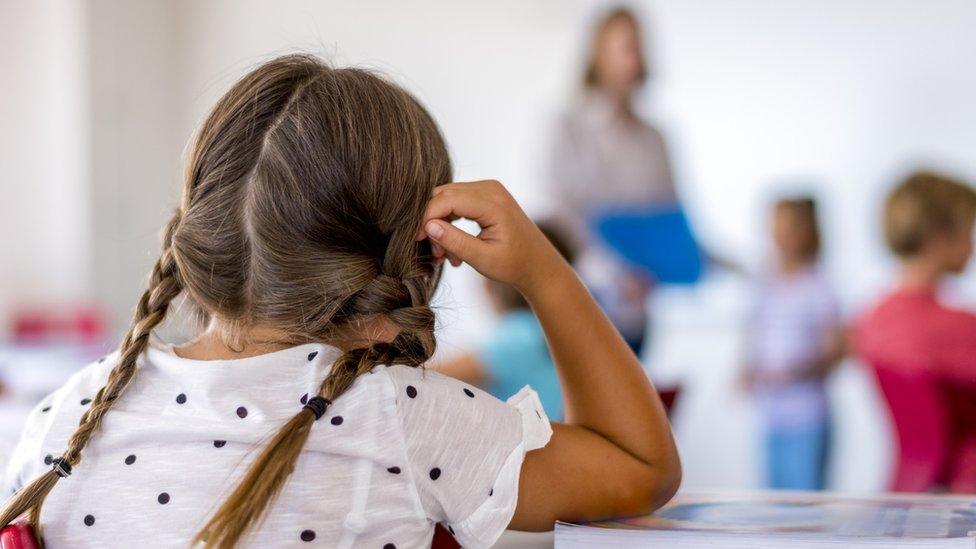Covid-19: Fleming Fulton school pupils to attend part-time
- Published
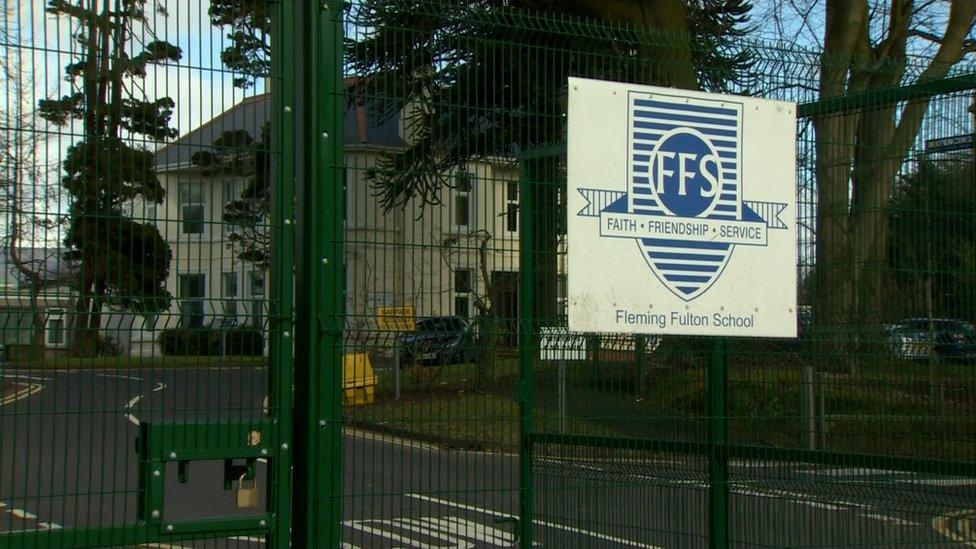
More than 100 pupils with a range of special educational needs attend the school
A Belfast special school has said its pupils can only attend part-time for two days a week from Monday.
Fleming Fulton school in south Belfast has more than 100 pupils with a range of special educational needs (SEN).
Principal Karen Hancock told parents of pupils the decision had been taken "in light of the increasing numbers of positive cases".
Education Minister Peter Weir decided on 5 January that special schools should remain open for all pupils.
In a letter to parents, Ms Hancock said additional guidance from the Department of Education (DE) had not been received by the school since that decision.
"In light of the increasing numbers of positive cases and lack of additional guidance to mitigate risk from Monday 18 January 2021, I am changing provision to a blend of pupils attending school for two days on either a Monday and Tuesday or a Thursday and Friday," she said.
"Wednesday will be a day for staff to prepare for both class and home learning."
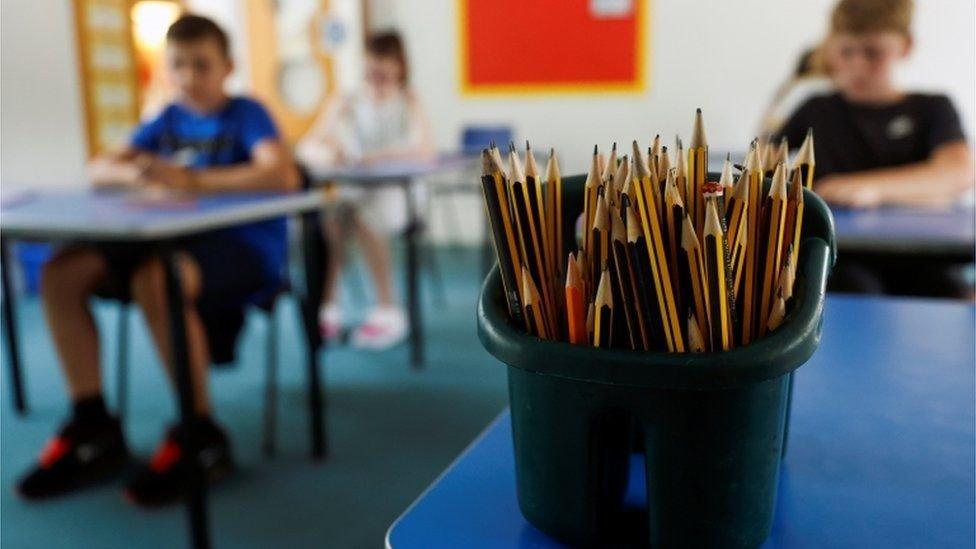
Pupils will attend Fleming Fulton school two days a week from Monday
"This new arrangement will help ensure that all pupils have equal access to provision - it is currently not possible for teachers to carry out face-to-face teaching as well as provide home learning activities.
"I am very aware of anxiety of both staff and pupils returning to school, including travel on EA buses and numbers of people in the school building.
"I believe that this will help by reducing the numbers of pupils throughout classes, reduce numbers using EA transport and help ensure consistency and continuity."
Ms Hancock told parents the arrangements would be reviewed by governors on Tuesday. 2 February.
"If schools receive additional guidance from the minister to mitigate risk, combined with a reduction in Covid-19 cases within our communities, I hope to be able to return to full-time provision as soon as it is safe to do so," she wrote.
'Difficult balance'
Marion Bradley, whose daughter Maeve goes to Fleming Fulton, told BBC's Evening Extra progamme that the whole family were very disappointed.
She added that her daughter's reaction to the announcement was terrible and that the news was "out of the blue".
"The communication with the school is a series of letters," said Mrs Bradley.
"There's not really any place to consult with the parents and I think that's part of the problem, we haven't been able to have a parent-teacher chat to discuss these things at all."
She said Maeve is depressed and that she hates missing school and not seeing her friends.
"We're tying to balance keeping her safe from this infection and keeping her mental health intact, and that is a very difficult balance.
"School was helping us with that and now that it's going down to two days a week, it's just like our children are ping-ponged from one thing to another.
"Depending on what the minister or the school says, our children are caught in the middle all the time."
A spokesperson for the Department of Education said: "Special schools are best placed to understand the needs of their children and young people, and to make informed judgements about how to balance delivering education within the measures needed to manage risk."
They added that in line with a framework issued on 31 December, special schools are working "to consider how best to support the needs of our most vulnerable pupils, while maximising the level of provision".
Safety measures
The National Association of Head Teachers (NAHT) said that while special school staff would work hard to keep them open there might be circumstances in which a school would be required to reduce hours for pupils.
It said that could happen if "safe levels of staffing cannot be maintained due to staff illness or absence, vital support from the Education Authority or the Department of Education (DE) is unavailable or vital and irreplaceable support services and therapies that are needed by children and schools are unavailable".
"We recognise that DE has explained that where onsite provision is not possible for individual young people, remote provision will be made by the school," NAHT said.
"However, we assert that the minister needs to be clear with parents that some factors will inevitably arise to require a reduction in onsite provision in order to keep children safe."
Related topics
- Published10 January 2021
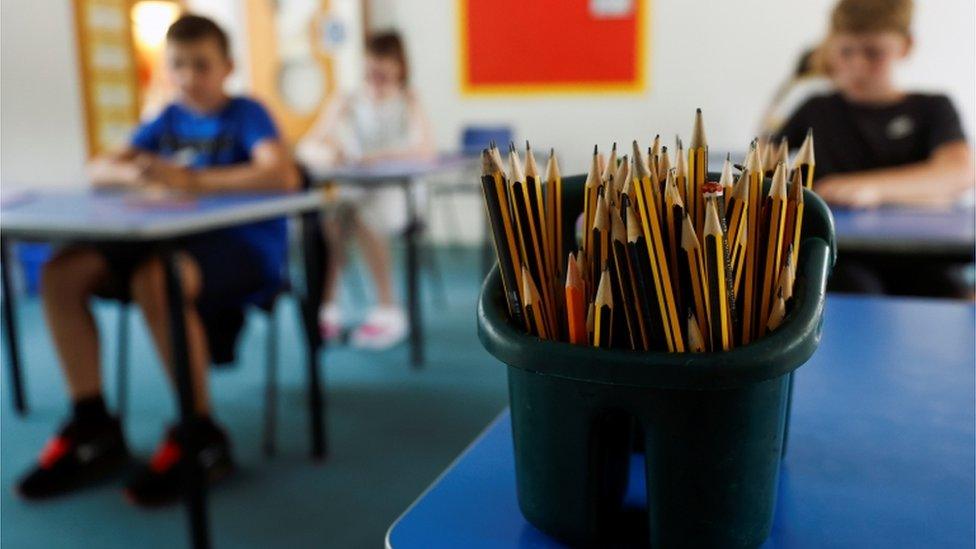
- Published9 January 2021
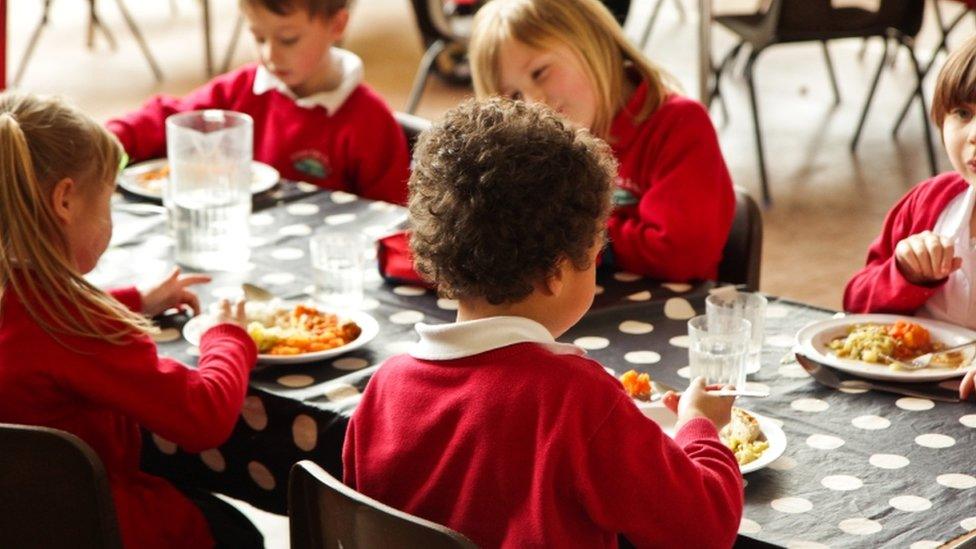
- Published9 December 2020
